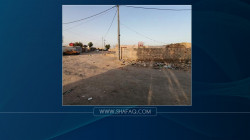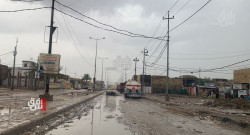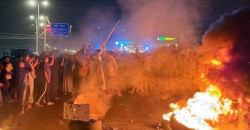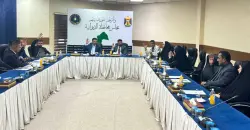Mass protests in Al-Diwaniyah: a neglected governorate, but hopeful for change
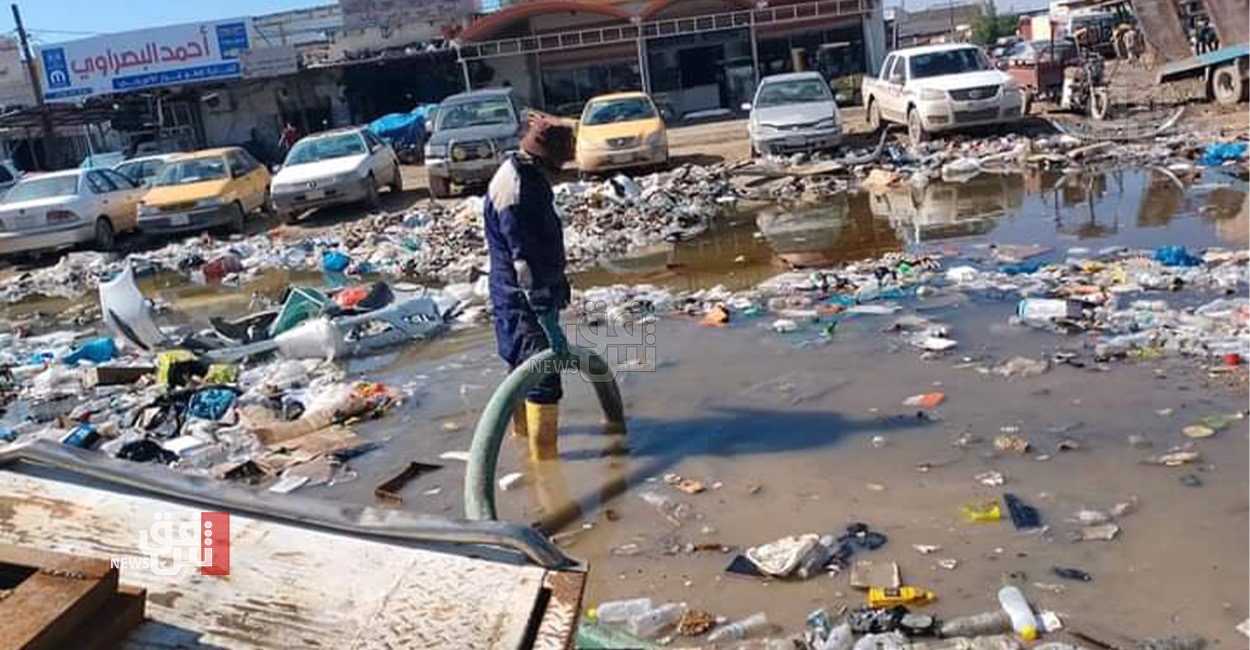
Shafaq News/ Once a flourishing agricultural hub cradled by the Euphrates, Al-Diwaniyah in southern Iraq now grapples with poverty and drought. Residents, weary of years of neglect and inadequate services, plan to take to the streets next week to demand an overhaul.
The southern governorate, with a population of over 1.5 million, grapples with a multitude of structural and functional issues. Poverty and unemployment prevail, while crucial sectors like healthcare, education, and infrastructure crumble under years of mismanagement. The agricultural backbone, the lifeblood of many, withers under the grip of drought.
With nearly half the population below the poverty line, Al-Diwaniyah is Iraq's second-poorest governorate, with many describing the situation there as "disaster-stricken."
Pointing fingers at the misuse of funds and unqualified contractors, they yearn for a "revolution" to revitalize services and build essential infrastructure.
Upcoming protests aim to be a call for change, urging the government to mend its ways and hold accountable those responsible for the current state of affairs.
Disaster-stricken
Local activist Dia al-Muhjah said Diwaniyah is a "disaster-stricken" governorate due "to the lack of nearly all government services and the failure of most development and investment projects."
He called for a "revolution" to improve the quality of services and create infrastructure projects, especially since current projects are awarded to incompetent companies. "One rainstorm is enough to reveal the deception of the government's work," he said.
Al-Muhja said that Diwaniyah needs a "high-level government team" and "intervention from the central government" to rescue the governorate from its current dire situation.
Major Protest
Civil activist Hassan al-Mahanna attributed the deterioration of the quality of services to the misuse of funds allocated to the governorate. "Billions have been spent, but the situation is still disastrous," he told Shafaq News agency.
Al-Mahanna said the local authorities "award contracts for major projects to unqualified companies. Most of these are essential to the citizens, like sewage, water, electricity, roads, sidewalks, and bridges."
He pointed out that the new governor, who took office about a month ago, has not held the companies accountable due to political pressure. "Each company is affiliated with a political party, and this is the reason for the suffering of al-Diwaniyah," he said.
Al-Mahanna said that major protests are being organized for next week to demand improvements in the quality of services and the intervention of the central government to save the governorate.
A City Lacking the Basics of Life
Council Member Tariq al-Barqawi said the council members "came out of the womb of suffering" and are determined to rebuild the city.
Al-Barqawi, in a statement to Shafaq News Agency, promised "future plans" to improve the quality of life in the "devastated" city, which has suffered for a long time. He said the city must be compensated by providing it with infrastructure projects, as it "lacks the most basic necessities of life."
On the current performance of the local government in Al-Diwaniyah, al-Barqawi said that the picture is not yet fully clear, as the government is still young. He added that "there will be direct follow-up on all projects in the province in the coming days, and the evaluation will be based on the achievement rates of each project."
On February 7, Al-Diwaniyah Governorate Council elected Abbas al-Zamili as governor on February 7, and Muhammad Shakhir as chairman.
The new governor of pledged to "fight corruption in all its forms, work to improve the quality of services in various sectors, tighten the supervisory role over government departments and institutions, and raise the level of coordination with ministries to benefit from their role in establishing infrastructure projects."
In his first speech as governor, al-Zameli said, "Cooperation between various stakeholders, including the private sector, to navigate the path forward."
"The next stage will be a stage of completing the plan that the federal and local government has followed, which was distinguished by the establishment of infrastructure projects."
He added that the local government will take strict measures to combat corruption and improve the situation of government departments to provide the necessary services to citizens.
The recently-elected governor promised a turning point in the status of the governorate. Vowing to combat corruption, improve service delivery across sectors, and foster collaboration for infrastructure projects, al-Zamili acknowledges the need for collective action. However, uncertainties cloud the horizon. Many are skeptical about the effectiveness of the new administration and its ability to translate promises into action, especially with broader national issues undoubtedly influencing Al-Diwaniyah's future.
